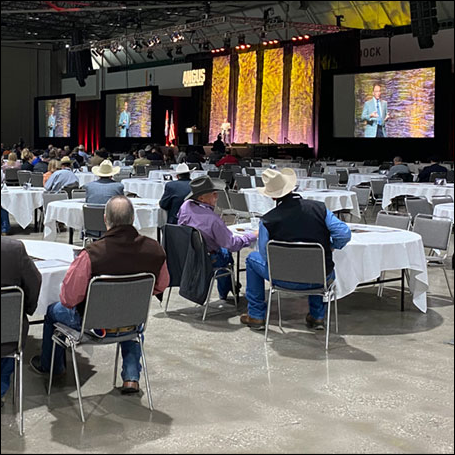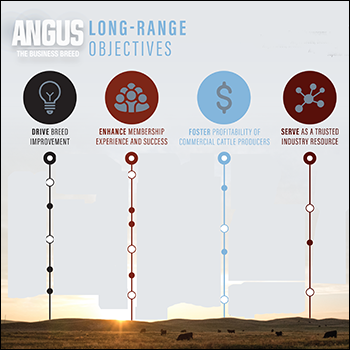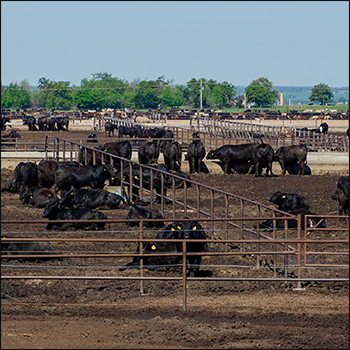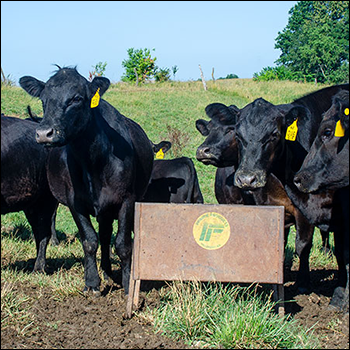ANGUS BEEF BULLETIN EXTRA
December 7, 2020 | Vol. 13 : No. 11

On The Export Front
USMEF details creative global marketing solutions, elects new officer team at virtual planning conference.

Adapting market development programs for U.S. pork, beef and lamb to a COVID-affected world and meeting the rapidly changing needs of international consumers were dominant themes of the U.S. Meat Export Federation (USMEF) Strategic Planning Conference, which convened virtually Nov. 10-13.
USMEF President and CEO Dan Halstrom kicked off the conference with a recap of 2020 export results, noting that U.S. pork exports are on a record pace, while beef exports have trended lower but are poised for a strong finish to the year. Halstrom noted that the recovery of foodservice activity in most key Asian markets is providing momentum for U.S. beef, with demand bolstered further by tightening supplies from Australia. He added that while pork exports to China have begun to cool from the unprecedented levels seen earlier this year, China’s demand will remain strong in 2021 and U.S. pork is well-positioned for growth in Japan, Mexico, Southeast Asia and Central and South America.
 |
| Keynote speaker Anja Manuel. |
Keynote speaker Anja Manuel, a former diplomat, author and leading advisor on emerging markets cited recent experience with pandemics as one of the reasons many Asian countries have recovered more rapidly from COVID-19 compared to the United States, Europe and Latin America.
“They have the experience of SARS (severe acute respiratory syndrome) and MERS (Middle East respiratory syndrome), so they’ve been through a pandemic before,” Manuel said. “Their health systems are nationalized, so it’s easier than here to get everybody on the same page. They’re going to come back faster economically than the rest of us.”
Manuel said U.S. beef and pork have a great opportunity for further growth in China — if trade tensions on nonagricultural issues don’t interfere.
“We need to find a way where we’re honest about our differences — where we push back on the Chinese when they’re crossing the line, or we actually cooperate,” she said. “I think one of those areas is agricultural exports. It’s really a sign of elegance and status in China to serve high-quality beef, pork, everything. [China’s middle class] wants things to be safe and natural and clean, and U.S. meat has all of those attributes. So, I think the market is there for you if the governments don’t get in each other’s way.”
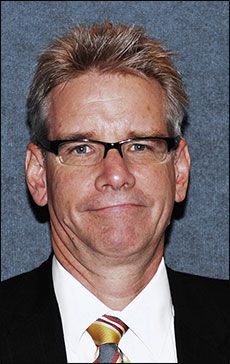 |
| Joel Haggard, USMEF senior VP, Asia Pacific. |
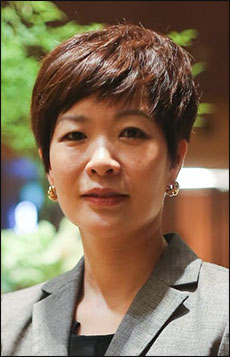 |
| Jihae Yang, USMEF South Korea director. |
Day 2 of the conference was highlighted by a panel discussion on creative marketing strategies. USMEF members heard from Joel Haggard, senior vice president for the Asia Pacific; Jihae Yang, director for South Korea; and Gerardo Rodriguez, marketing director for Mexico, Central America and the Dominican Republic, on the challenges involved in meeting consumers’ needs through various stages of COVID-related restrictions.
All noted that the surge in e-commerce, online ordering and delivery services, as well as expanded options for preparing higher-end meals at home, are likely to endure well into the future, even as restrictions are eased.
The conference concluded Friday with a presentation by former assistant U.S. trade representative Sharon Bomer Lauritsen and the election of USMEF’s new officer team.
 |
| Gerardo Rodriguez, USMEF marketing director for Mexico, Central America, DR. |
Bomer Lauritsen, who recently retired from the U.S. government after 29 years of service and is now a trade policy consultant at Ag Trade Strategies LLC, recapped many key trade breakthroughs for U.S. red meat over the years. She noted that while the Trump administration’s approach to tariffs and trade sometimes put agricultural exports in a negative position, it also helped bring key trading partners such as Japan and China to the negotiating table on longstanding market access obstacles for U.S. beef and pork. She also offered a preview of what to expect from a new administration.
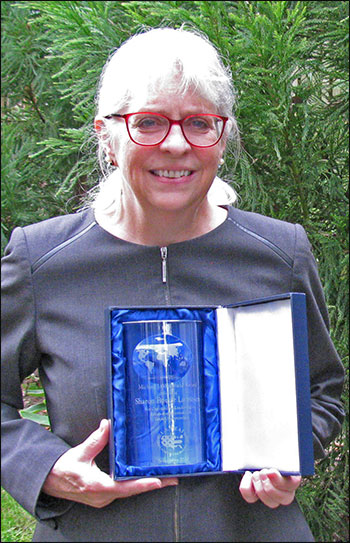 |
| Sharon Bomer Lauritsen received USMEF’s Michael J. Mansfield Award. |
“President-elect Biden has stated his priority will be fixing domestic issues first, but that doesn’t mean that the new administration at lower levels can’t lay the groundwork to build constructive relationships and a foundation for trade negotiation,” she said. “Biden also hasn’t rejected engaging on the Comprehensive and Progressive Agreement for Trans-Pacific Partnership (CPTPP), but has stated the U.S. would need to see changes. I think it’s possible to move forward with a Japan negotiation, although automotive issues will be difficult and could have ramifications for agriculture.”
Bomer Lauritsen said she feels that more than ever, the ag sector will need a unified voice.
“Agriculture will need to speak up with the new administration on its priorities, and we need to strengthen the bipartisan nature of American agriculture,” she said. “Over the past 30 years, I’ve seen it, to a small degree, falling apart. There has never been a more important time to maintain a strong and unified agriculture and agribusiness voice at the state level, and in Washington, D.C., to balance the industrial voices. U.S. agriculture will need to defend and advance its interests, make sure they are heard over the nonag voices, and keep the rules of trade strong and enforced to ensure that American agricultural exports continue to thrive.”
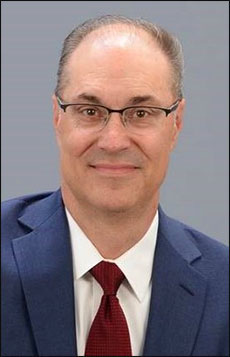 |
| USMEF Chair Pat Binger. |
New chair
The new USMEF chair is Pat Binger, who leads international meat sales for Cargill Protein North America. Based in Wichita, Kan., Binger has been in the red meat industry for 33 years, including 17 years directing Cargill Protein’s overseas network of offices. He succeeds Idaho cattle feeder Cevin Jones, who chaired the organization for the past year.
Raised on a diversified farm in northeastern South Dakota and a graduate of Northern State University, Binger joined Cargill subsidiary Excel Corp. in 1987. His first opportunity to become deeply involved in international marketing came in 1991.
“While working in sales for another Cargill subsidiary, I was asked if I was interested in assuming responsibility for a small export business we had at that time,” Binger said. “Although I didn’t have any export experience, I said, ‘Absolutely!’ Shortly thereafter, I took a three-week trip to eight countries, traveling throughout Asia, meeting customers and gaining market exposure. I returned from that trip really excited about international business and the global red meat trade, and it’s been a passion of mine ever since.”
Despite facing trade barriers and an uncertain economic climate in many key regions of the world, Binger sees excellent prospects for further expansion of U.S. red meat’s global footprint.
“From a carcass utilization standpoint, we need to continue to find ways to expand our export product mix. That’s a big opportunity going forward,” he said. “Additionally, there are items today that our industry is not getting boxed, either due to lack of labor or a combination of labor and complexity, and that’s another opportunity that we need to manage through. But all in all, I am very optimistic about the U.S. red meat industry’s ability to take on challenges and seize the opportunities that lie ahead. I remain excited and highly encouraged about the future of our industry.”
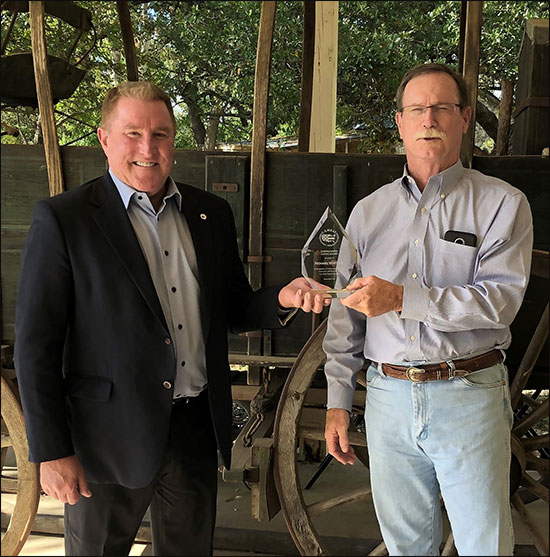 |
| Richard Wortham (right) accepts the USMEF Distinguished Service Award from President and CEO Dan Halstrom. |
Mark Swanson, CEO of Colorado-based Birko Corp., is USMEF’s new chair-elect. Dean Meyer, a corn, soybean and livestock producer from Rock Rapids, Iowa, will serve as vice chair. The newest member of the USMEF officer team is Secretary-Treasurer Randy Spronk of Edgerton, Minn. A past president of the National Pork Producers Council and the Minnesota Pork Producers Association, Spronk also served as chair of USMEF’s Pork and Allied Industries Committee and represented the pork-producing and feeding sector on the USMEF Executive Committee. He serves on the board of directors of Wholestone Farms and is president and managing partner for Spronk Bros. Holding, which includes operations that produce pork and feedgrains, along with feed milling and delivery.
USMEF presented its 2020 Distinguished Service Award to Richard Wortham, executive vice president of the Texas Beef Council, while Bomer Lauritsen received the organization’s Michael J. Mansfield Award. More information on these awards is available online.
USMEF’s next meeting is the 2021 USMEF Spring Conference, which is set for May 26-28 in Minneapolis.
Editor’s note: This article is provided by USMEF (www.USMEF.org), the trade association responsible for developing international markets for the U.S. red meat industry. It is funded by USDA; the beef, pork, lamb, corn and soybean checkoff programs, as well as its members representing nine industry sectors: beef/veal producing & feeding, pork producing & feeding, lamb producing and feeding, packing and processing, purveying & trading, oilseeds producing, feedgrains producing, farm organizations and supply and service organizations.

